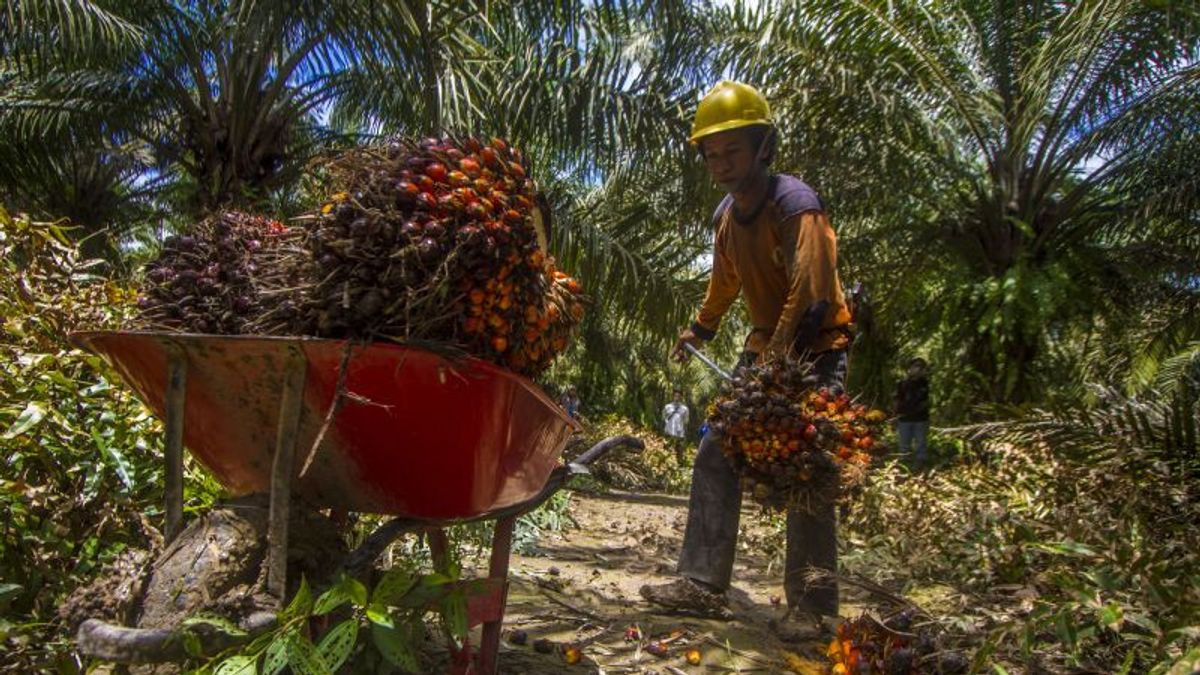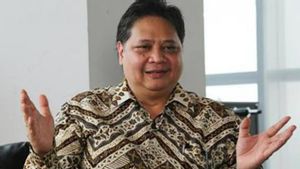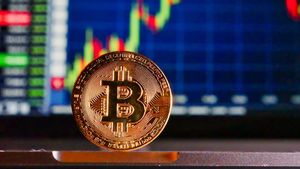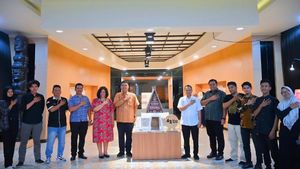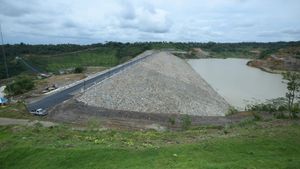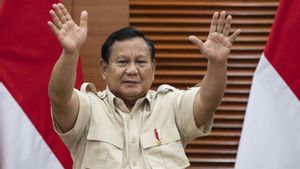JAKARTA - Indonesian oil palm farmers' organizations have asked President Joko Widodo (Jokowi) to fix regulations within the Palm Oil Fund Management Agency (BPDPKS).
This is in line with the reopening of cooking oil exports.
The organizations for Indonesian oil palm farmers are the Palm Oil Farmers Union (SPKS), Apkasindo Perjuangan, the Indonesian Sustainable Oil Palm Farmers Forum (FORTASBI), the Association of Palm Oil Farmers for Nuclear Plantation (ASPEKPIR), the Indonesian Palm Oil Farmers Forum Association (POPSI). ), Indonesian Farmers Union (SPI), Indonesian Sustainable Oil Palm Farmers Network (Japsbi).
Chairman of POPSI Pahala Sibuea explained that the reason why there is a need for regulatory reform is because his party sees BPDPKS as one of the keys to improvements in palm oil governance in Indonesia.
"For example, in the future BPDPKS must focus on supporting institutions of oil palm farmers throughout Indonesia," he said in an official statement, Friday, May 20.
Pahala Sibuea also mentioned that so far BPDPKS has been mostly used for the benefit of biodiesel conglomerates.
"For example, it can be seen from the BPDPKS funds of Rp. 137.283 trillion collected from 2015-2021, the majority of which is around 80.16 percent of the funds, which are only for biodiesel subsidies owned by palm oil conglomerates, while oil palm farmers are only 4.8 percent through People's Palm Oil Rejuvenation Program (PSR)," he said.
Meanwhile, FORTASBI Chairman H Narno said, after the revocation of cooking oil exports, the government must also pay attention to palm oil management.
"Giving support to institutional oil palm farmers to have palm oil processing factories to cooking oil by utilizing the existence of palm oil funds managed by BPDPKS," he explained.
In addition, APKASINDO Struggle Chairman Alpian Arahman thanked President Joko Widodo for lifting the CPO export ban which will take effect on 23 May 2022. According to him, the reopening of CPO exports will certainly normalize the palm oil trade system of Fresh Fruit Bunches (FFB). oil palm farmers throughout Indonesia, who had experienced problems.
"Both in terms of prices, which have fallen drastically below the average of 2,000 rupiah per kilogram and also restrictions on FFB purchases by several companies in Sumatra, Kalimantan and Sulawesi," he said.
Jokowi opens cooking oil exportPreviously reported, President Joko Widodo (Jokowi) announced that Indonesia would again open the tap for cooking oil exports next week.
"I have decided that cooking oil exports will reopen on Monday, May 23," Jokowi said as shown on the Presidential Secretariat's YouTube, Thursday, May 19.
Jokowi said this decision was taken by prioritizing several considerations. The first is the increasing supply of cooking oil to meet domestic needs.
"Based on my direct checks in the field and the reports I received, thank God, the supply of cooking oil continues to grow," said Jokowi.
"The national demand for bulk cooking oil is approximately 194,000 tons per month and before the export ban our supply only reached 64,5000 tons, but after the export ban in April, our supply reached 211 thousand tons per month, exceeding our monthly national needs," Jokowi added.
The second reason is the decline in the national average price of cooking oil. "In April, before the export ban, the national average price of bulk cooking oil was around Rp. 19,800 and after the ban, the national average price was Rp. 17,200 to Rp. 17,600," Jokowi explained.
Then, the government also considers the condition of 17 million workers in the palm oil industry. Thus, the government decided to lift the export ban that had previously been enforced. However, strict supervision will continue to be carried out so that domestic supplies are still met.
"Even though exports are opened, the government will monitor and monitor closely to ensure supplies are still met at affordable prices," he stressed.
The English, Chinese, Japanese, Arabic, and French versions are automatically generated by the AI. So there may still be inaccuracies in translating, please always see Indonesian as our main language. (system supported by DigitalSiber.id)
